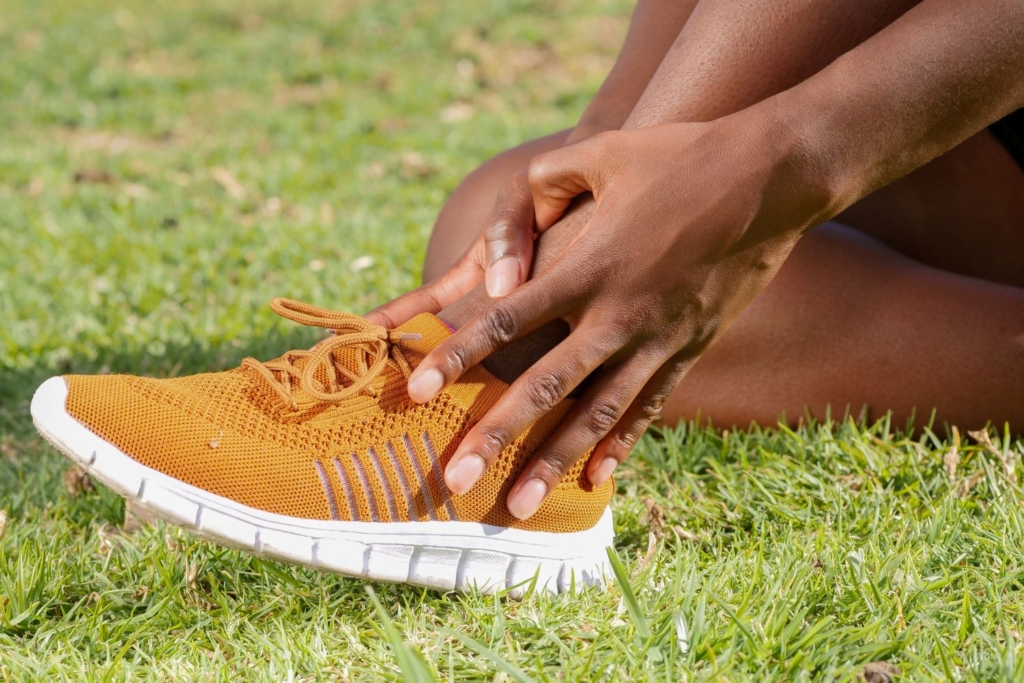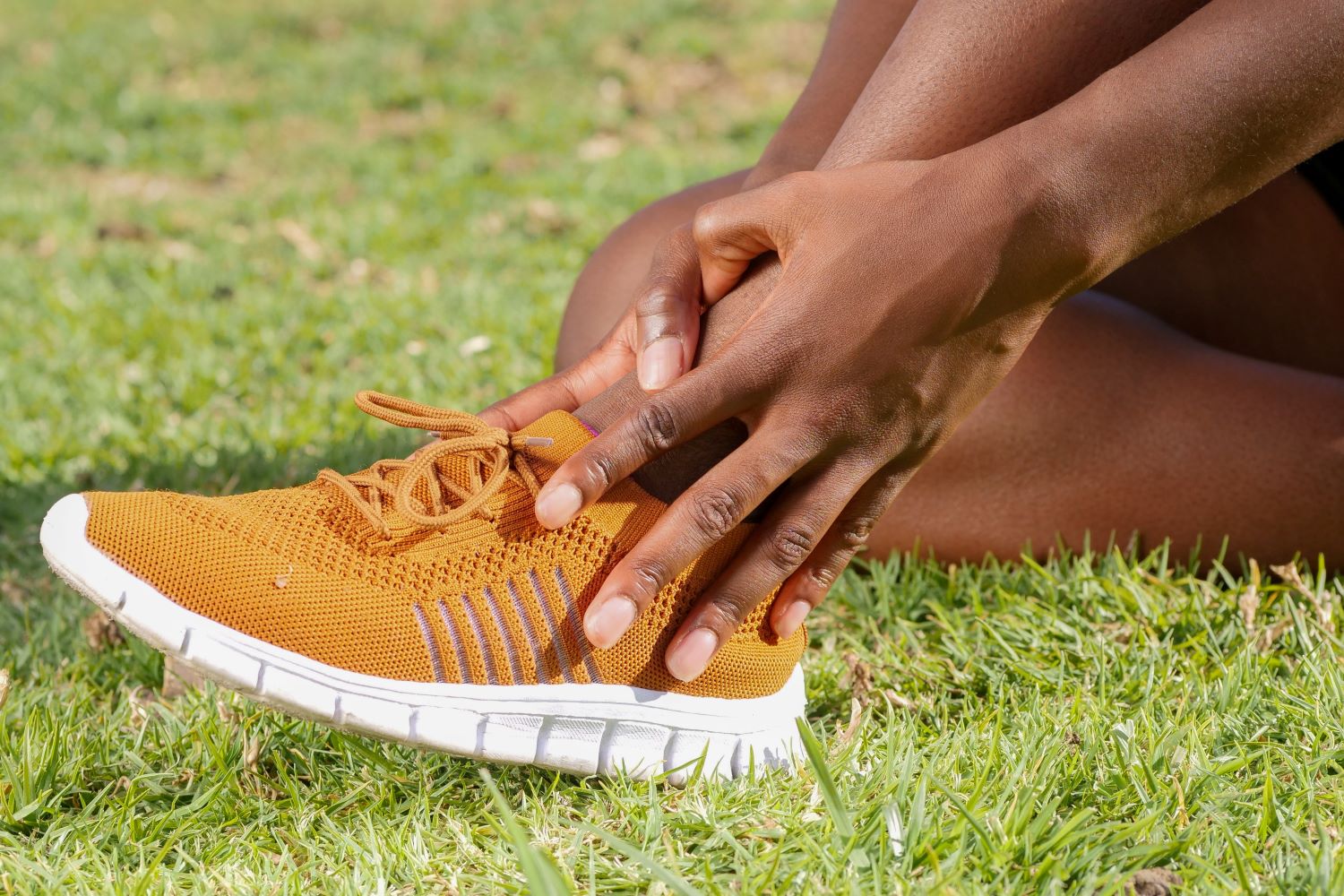
It is very common that patients report a complaint of painful leg cramps and they often ask if varicose veins cause leg cramping? The answer is that sometimes yes, varicose veins can be associated with painful leg cramps and sometimes treating varicose vein patients can result in their reporting fewer leg cramps after their vein disease is addressed. However, there are numerous causes of leg cramps and while some can be due to blood flow and blood vessels, others can be due to other medical causes.
Common Causes of Leg Cramps
There are many potential causes of leg cramps in patients with and without varicose veins or spider veins. For example, painful leg cramping is known to be associated with electrolyte imbalances and thus checking with your primary physician can be helpful as well. Also peripheral artery disease can be associated with leg cramping, especially when walking. Additionally, some patients simply find that moderate heat or too much heat in the summer can make their cramps worse. Additionally, when one has tight muscles leg cramps can occur.
However, if you have a varicose vein, spider veins or varicose veins and thus venous insufficiency it is worth seeing a vein expert for a check of your vein health to determine if varicose vein or varicose veins cause leg cramps in your case.
What Are Leg Cramps?
Cramps in the legs are common. These sudden, involuntary muscle contractions can occur in the thigh, leg, knee, or ankle, and are often tight and painful. Most leg cramps last from a few seconds up to 10 minutes depending on the location.
How to Relieve Leg Cramps Caused by Varicose Veins
If you experience leg cramps, it’s not time always time to worry yet! Most cramping is not problematic on its own, and will go away with proper mitigation tactics.
Here are some important steps you can take to prevent and relieve leg cramping:
-
Wear compression hose if you have leg swelling
-
Get enough daily magnesium and potassium
-
Stay hydrated with water or electrolyte drinks
-
Limit caffeine and alcohol (dehydration causing)
-
Warm up before exercise and cool down afterward
-
Stretch regularly
If you experience cramping during a workout, stop the exercise immediately. Reposition your leg to find comfort, then stretch the area until your symptoms are no longer present. If you are concerned however, if there is a medical component it never hurts to bring this up with your primary care provider.
What is the Connection Between Varicose Veins and Leg Cramps?
Veins carry deoxygenated blood flow from legs back to the heart. There are tiny valves in the leg veins prevent blood from pooling in the lower legs. When patients have venous insufficiency, especially after, for example, prolonged standing, blood can pool in the lower legs and stretch out not only the veins, but the tissues and calf muscles. It is thought this might be related to persistent leg cramps in some patients.
Vein Valve Dysfunction:
Varicose veins occur when the valves inside the veins malfunction, allowing blood to pool in the legs. This pooling can put pressure on nerves and muscles, leading to inflammation and cramps.
Weak Vein Walls:
When vein walls weaken and stretch due to varicose veins, they exert pressure that can trigger cramping or spasms.
Severity of Venous Insufficiency May Impact the Degree of Leg Cramps
Some patients have pretty mild varicose veins where as others, especially after prior blood clots in their veins, such as a history of deep vein thrombosis and complications like pulmonary embolism there can be profound long lasting damage to their veins that can cause leg cramps from the very high pressures in the veins and calf muscles.
Many of these patients complain of restless legs and they have to stop and elevate their legs to relieve pain some days. Some will utilize compression stockings to help improve blood flows out of their legs with the hope of reducing leg cramps. Other patients who have sought treatment for their venous reflux and varicose veins have reported they later have less cramps. This suggests that at least in these patients, their enlarged veins had a role in their muscle cramping.
How to address leg pain from cramps related to varicose veins.
When dealing with persistent cramps, it’s essential to consult your primary care provider. They’ll initiate an evaluation process to identify potential causes. The list of culprits is broad, ranging from vascular to non-vascular issues.
You primary provider may talk about how it is important to maintain a healthy diet, reduce excess weight and avoid standing for long periods. Some might even suggest a warm bath from time to time to help pain and cramps from varicose veins.
If you have healthy veins they can look at other causes such as electrolyte imbalances, and other medical causes.
Many times they may start by talking to you to avoid prolonged standing and wearing compression stockings. This can help by helping move deoxygenated blood flow and for some can reduce the symptoms of malfunctioning veins.
If you have varicose veins, spider veins, poor blood circulation, leg swelling, or a history of blood clot it may be reasonable to seek out a vein specialist to assess your vein health.
If you see a vein specialists they can do diagnostic studies with ultrasound to look for weakened valves that might be leading to chronic venous insufficiency and varicose veins that could contribute to your muscle cramps. After they assess you for the cause cramps they may offer you treatments for your leg veins to try to help you obtain a more healthy circulation.
Can Varicose Veins Cause Leg Cramps?
The answer is yes that varicose veins can cause painful leg cramps. However there can be other causes so it is important to check with your primary care provider or vein specialist if there are any questions.
Make An Appointment With Our Vein Specialists To Assess Your leg Cramps
Making and appointment is easy: Simply fill out our Online Vein Screening Form or call any of our clinics in Northwest Portland , Tigard, Happy Valley, Tanasbourne or Bend, Oregon or Vancouver Washington.
